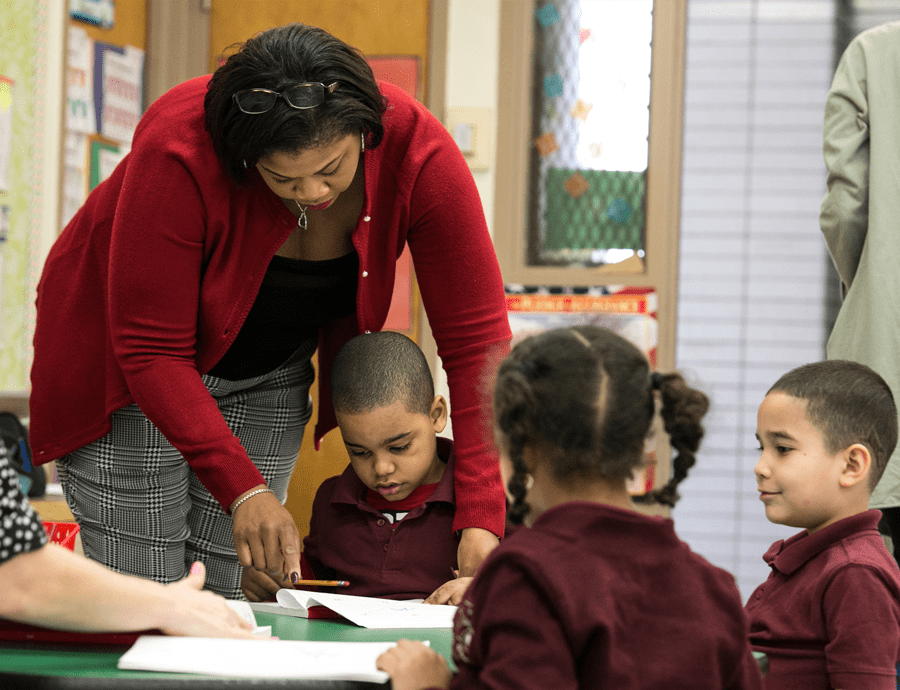MENTORING & TUTORING PROGRAM

- Engage the whole student.
- Students are multidimensional and complex.
- Intellectual, social, and emotional learning is intertwined to meet and sustain high expectations in our schools.
- We must consider all experiences that impact a student’s ability to be successful in the classroom.
Our holistic approach to mentoring and tutoring uses high-quality instructional materials coupled with social-emotional learning and parent/family engagement and involvement. Through our method of delivery, our Professional Student Advocates (PSAs) strengthen subject matter comprehension, boost confidence, and build essential learning skills. This happens in a small group setting so that students are provided with more personalized learning opportunities to increase their chances for academic success.
Objectives
- Improve academic performance in core classes
- Enhance social-emotional competencies
- Improve attendance
- Improve attitudes towards school
- Reduce number of in-school and out-of-school suspensions

Program Overview
Tutoring is known as an evidence-based practice that produces quantifiable results among students who struggle. Our established tutoring infrastructure has been created to accelerate student learning, especially among underserved students in schools.
- Four days per week for at least 30 minutes
- Targeted small groups of no more than four students
- Effective for a wide range of tier 2 and tier 3 students at various grade levels
- Moderate principal and teacher involvement
Wraparound support
Mentoring and tutoring only works when students are present to receive the support. Throughout the mentoring and tutoring experience, ensuring that students remain engaged and sustain participation will be necessary. We address this through the following student advocacy methods:
- Home visits
- Parent phone calls
- Daily individual one-on-one check-ins with students
- Classroom observations